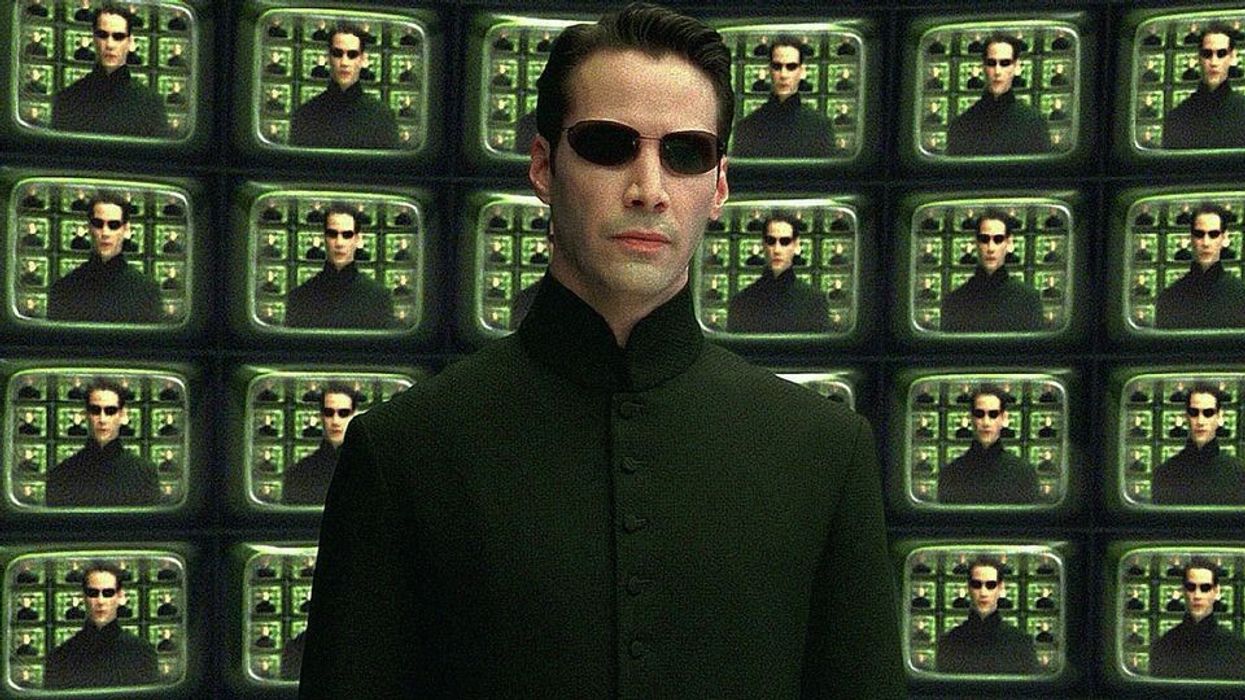I'm Worried About Big Data and Hollywood
Are you ready to succumb to the algorithm?

Let's jump right into it. In recent years, big data has become increasingly prevalent in Hollywood, with studios using advanced analytics tools to gain insights into audience preferences and behavior.
By analyzing vast amounts of data from social media, digital devices, and other sources, Hollywood hopes to make more informed decisions about what films to produce, how to market them, and how to engage with audiences.
Fine. I can mostly deal with that, but it's taking over in subliminal ways that are fundamentally changing the storytelling we're getting on screens.
This article will explore the opportunities and challenges of big data in Hollywood and consider how this powerful technology is changing the way films and TV are made, marketed, and consumed.
Let's dive in.

What is Big Data?
Big data refers to large and complex sets of data that are difficult to process using traditional data processing tools and techniques. It typically involves extremely large amounts of data, with varying formats and structures, and can come from multiple sources, including social media, digital devices, and online transactions.
It refers to data sets that are too large or complex to be dealt with traditionally.
Big data is characterized by the "3Vs," volume (large amount of data), velocity (fast rate of data generation), and variety (different types of data). Because of its size and complexity, big data requires advanced data analytics tools and techniques, including machine learning and artificial intelligence, to extract insights and patterns.
Yeah, we're in the future, baby.
Why Should We Care About Big Data In Hollywood?
I know this topic can sound boring, but I assure you it is really important.
There are several reasons why we should care about big data in Hollywood. Right at the top, it's the impact on the entertainment industry.
Big data is transforming the entertainment industry by providing insights into audience preferences and behavior. This is changing the way films are marketed, produced, and distributed, and could ultimately shape the future of the industry.
Big data allows Hollywood to create more personalized and targeted content that resonates with specific audiences. This can lead to a more engaging and satisfying viewing experience for audiences. Also, it can completely cut out stories that they don't think resonate wide enough to make money.
It's not just about content. Think about how we already treat movies that are diverse or made for certain groups who may not be in the majority. Now think about how if we let big data tell us there isn't a big enough audience. How many of those projects will ever be made?
While big data can provide valuable insights into audience preferences, it can also limit creativity and innovation in storytelling. Hollywood needs to balance data-driven decision-making with artistic freedom and experimentation.
We want to make sure creatives are given the assets to tell the best story, not to tell stories that the data allows or perceives as popular.
Big data is shaping the future of Hollywood and has important implications for the industry, audiences, and society as a whole. As such, it is important to pay attention to the ways in which big data is used and to consider the ethical and creative implications of its use in the entertainment industry.

The Worrisome Issues With Big Data and Hollywood
We went over a few worries in the last section, but I wanted to break down what has me really worried about big data and the many companies that are using it right now. Here's a generic list of what frightens me:
Creative Limitations: Big data analytics can provide insights into what audiences want to see, but this can also limit creativity and innovation in storytelling. By relying too heavily on data, studios may miss out on taking risks and exploring new ideas.
Lack of Diversity: Big data can reinforce biases and stereotypes by relying on past data, which may not reflect a diverse range of experiences and perspectives. This can lead to a lack of diversity in casting, storytelling, and representation in Hollywood.
Privacy Concerns: Big data analytics require access to personal information, such as viewing habits and social media activity, which raises concerns about privacy and data security. There is also a risk that data may be used to target audiences in ways that are manipulative or unethical.
Unreliable Predictions: While big data can provide insights into audience preferences, it is not always accurate. The success of a film depends on many factors, including marketing, timing, and critical reception, which may not be reflected in data analysis.
Cost: Analyzing big data requires significant investment in technology and personnel, which may not be feasible for smaller studios or independent filmmakers.

We're Already Seeing Big Data Used in Screenwriting Contests
Imagine you had access to a huge number of people who have submitted their films, screenplays, treatments, shorts, web series, etc. to contests over the last 15 years.
This information about them, the amount of money they spend, the frequency with which they spend it, their addresses across the world, and their success rate, would all be very valuable to a company trying to find similar people to market to and trying to expand the ways in which it makes money.
And what about companies that work in tandem? Like people who sell screenwriting software, advice, or even different contests that unite forces or are all owned by one corporation.
With the combination of all these companies or competitions, it's easy to understand how this data is going to be used as an easy way to mass-market accessibility to Hollywood in exchange for a lot of money. If you want to be a writer or a filmmaker and don't live and work in Los Angeles or New York, your access is limited. There are people all over shooting shorts and writing scripts, using platforms like Film Freeway to spend thousands of dollars submitting all over.
Some screenplay contests and platforms track the contests you submit to and rank in.
Well, what happens when that company owns hundreds of contests and can drain data from hundreds of others through partnerships? Could they emphasize you submitting to those to get your ranking higher on their platform? Could they market these contests to you in order to get your title ranking higher? This would create their own ranking system, pitting you against others, without telling you what they're really doing is internally sharing data across several different platforms.
Aside from just script competitions, I wonder how this will expand to short films. Could you imagine a world where you paid to host your shorts as well, with numerous competitions that you pay to submit to (all inside one company), hopefully winning meaningless accolades that push their rating system? They promise that once at the top, the project might develop "heat" and interest from production entities, but if it doesn't, they ask for more money to get you ahead.
You can already see how this can be used to take money away from aspiring people doing anything to break into the biz.

Summing Up Big Data and Hollywood
Big data is transforming the way Hollywood operates, providing new opportunities for filmmakers, studios, and audiences alike.
By using advanced analytics tools, Hollywood is gaining insights into audience preferences and behavior, allowing for more targeted marketing and more informed decisions about film production.
However, big data also raises important ethical and creative concerns, and it is important for the industry to balance the power of data with the need for diversity, privacy, and artistic freedom.
As big data continues to shape the future of Hollywood, it will be important to consider the ways in which this technology can be used to create compelling and innovative films that resonate with audiences around the world.
Let me know what you think in the comments.











